QuestionHey Rick,
Just a random training question - where do you stand on the issue of imprinting? Some people swear by it, others avoid it at all costs... Most of the foals I've worked with have been range-bred and unhandled until weaning, and the few imprinted ones I've experienced have been either easier, or more difficult to work with than the unhandled weanlings...
So here's my basic stance: I can see how it could be effective if done PROPERLY, but I'm not sure exactly how I feel about it... in the wild (and domestic) the psychology of the newborn foal is that of extreme emotional sensitivity, and everything sensory (sight, sound, olfactory) is immediately absorbed postpartum -- this is how they identify with the unique body/breath odor, and voice of their dam. With this being known, I feel just simply being present at the foal's birth, and providing limited touch/voice stimuli, and infrequent, yet positive experiences early in life would be enough to aid in the foal's future portrayal of humans.
But, in traditional imprint training (Dr. Robert Miller's book), they suggest laying down the foal, probing orifices, flooding, etc. In my experience, this type of imprinting can be effective in creating a more "dumbed-down", blindly obedient individual, but is abrasive, occasionally interrupts the mother's natural imprinting process, and can make the effected foal somewhat dull in the future - losing its natural sense of curiosity. Over-imprinted, or improperly imprinted individuals are actually more prone to being uninterested in people, and to lacking the "want", and learning drive that is so important in training. Plus, if the foal accidentally imprints onto people, instead of its dam, humans can suddenly become "mom", and the horse-human relationship becomes a parasitic one, yielding very little respect.
Anyway, what I'm getting at with this novel lol is wouldn't it be more effective just to use the foal's natural dependance and curiosity (at ANY age, not just immediately after birth) to establish dominance/trust, as opposed to "raping" the foal into submission physically at birth? In my opinion, it's more effective to form a relationship based on mental conditioning and consent, where the foal (or full-grown horse) is always kept wanting more.
Though, i guess for most of the world's horse owner population, who have about 3% total grasp of horse behavior, maybe I would suggest not touching the foal until weaning, simply because of the high risk of mental damage either through traumatization or being "spoiled". I don't have a preference either way, both leaving the foal in a natural setting, and proper imprinting have certain benefits. I respect you and your methods as a horseman, so was just curious of your opinion on the matter.
Thanks again -- Happy Holidays.
Cheers,
Hannah
AnswerI talk about this a lot in many videos, watch my baby horse videos, not a fan of it, exposing and being around baby and mom ok and can be good, too much handling interferes with mom ability to teach baby how to be a horse. When done wrong, like most times it is, it teaches a baby horse how to disrespect people, how to move people, and many other bad lessons.
Horses are the best teachers of horses, most imprinting people think they can teach it better, they are wrong and the horse pays for their ignorance.
Let mom do the horse teaching, people can do the handling teaching later after the baby has been taught hard and sometimes very aggressive lessons from mom. Another issue is mom will teach as much when humans are in the way, so it causes mom to stay out and away from baby, which is why there are so many cases of foal rejection nowadays.
My web site covers this too, but my videos tie it together.
that is my take.
Rick

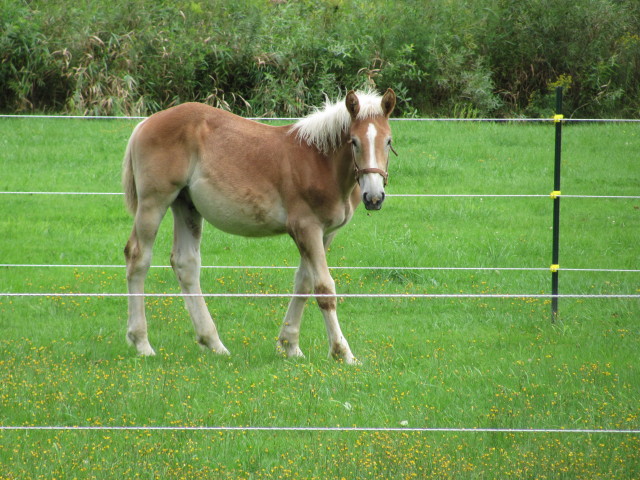 our new weanling
QuestionOllie
QUESTION: Hi there,
I recently pur
our new weanling
QuestionOllie
QUESTION: Hi there,
I recently pur
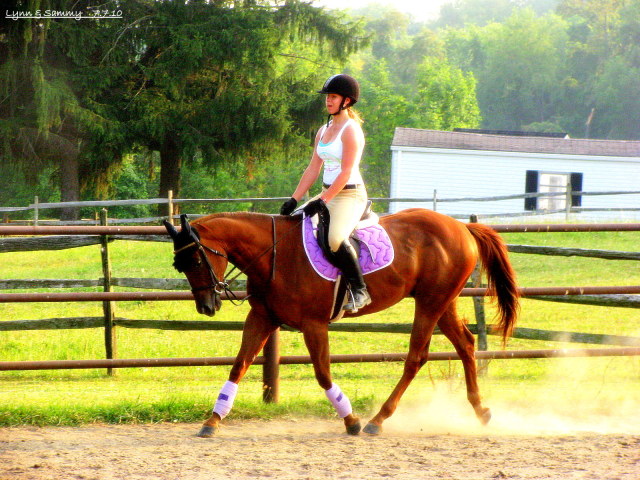 behavior problems
Question
troting sammy(:(:
i just bought a 5y/o chestnu
behavior problems
Question
troting sammy(:(:
i just bought a 5y/o chestnu
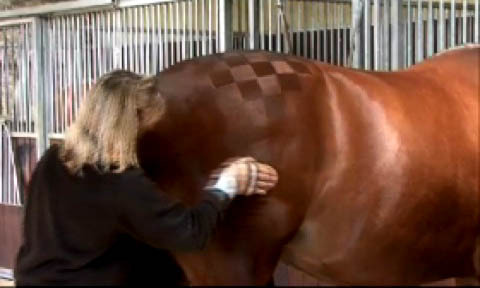 quarter marks on horses
Question
quarter marks on horse
hello sir. may i
quarter marks on horses
Question
quarter marks on horse
hello sir. may i
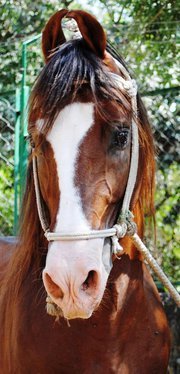 veins coming out on horse face
Question
veins coming out on ho
hello maam, this is a k
veins coming out on horse face
Question
veins coming out on ho
hello maam, this is a k
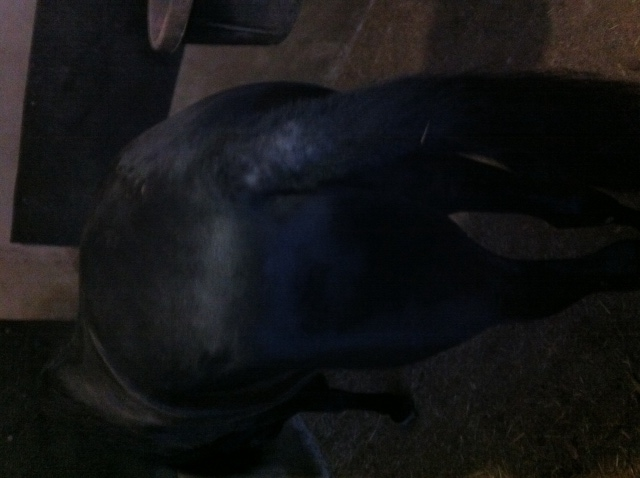 Hair loss
Question
Tail Tail close up
Rick: i have r
Hair loss
Question
Tail Tail close up
Rick: i have r